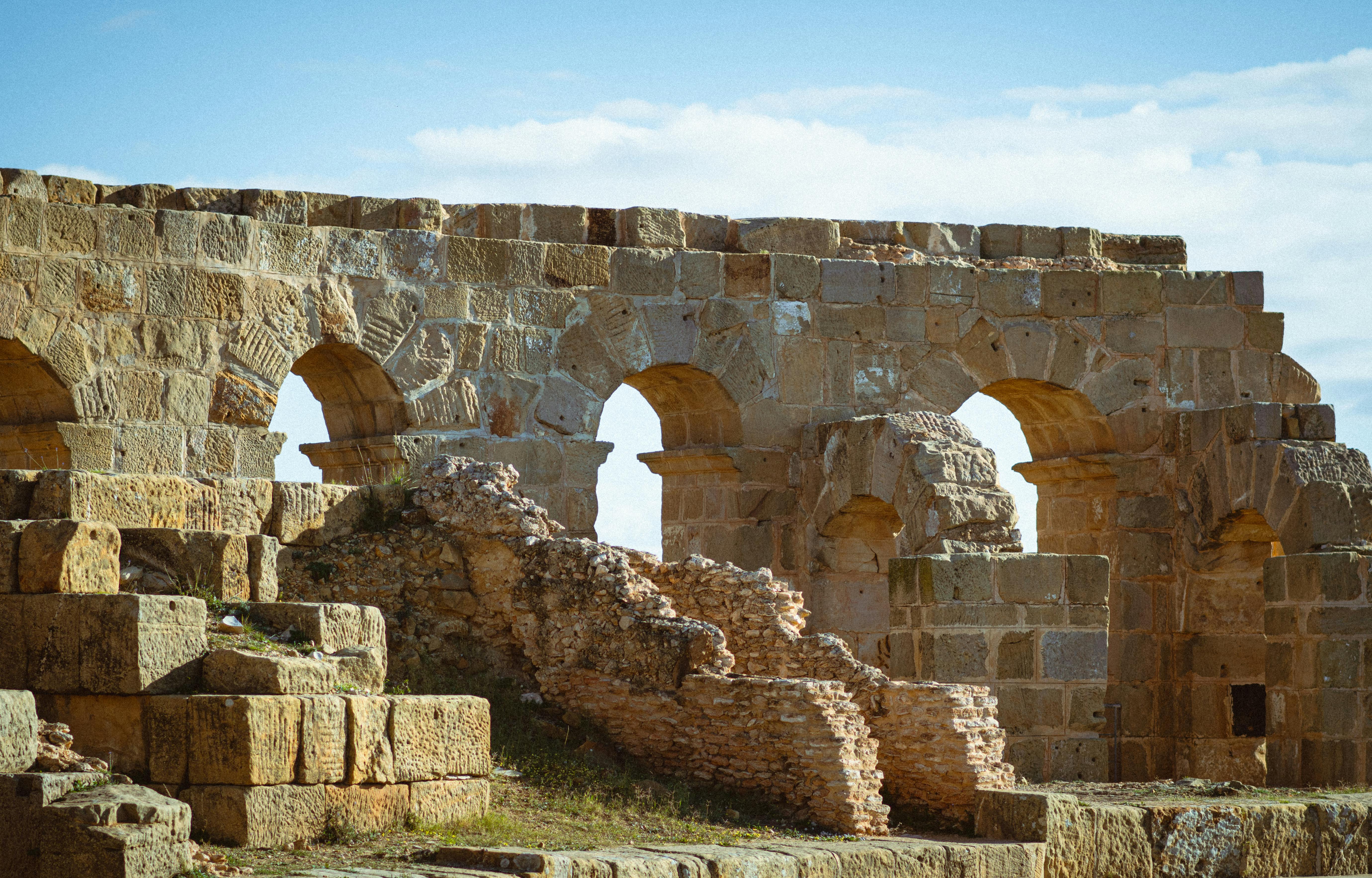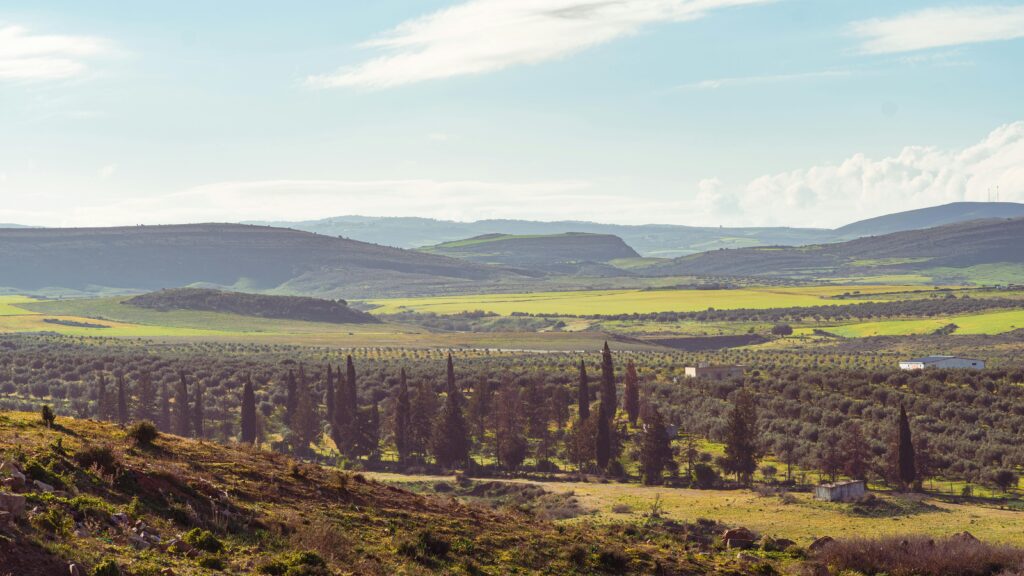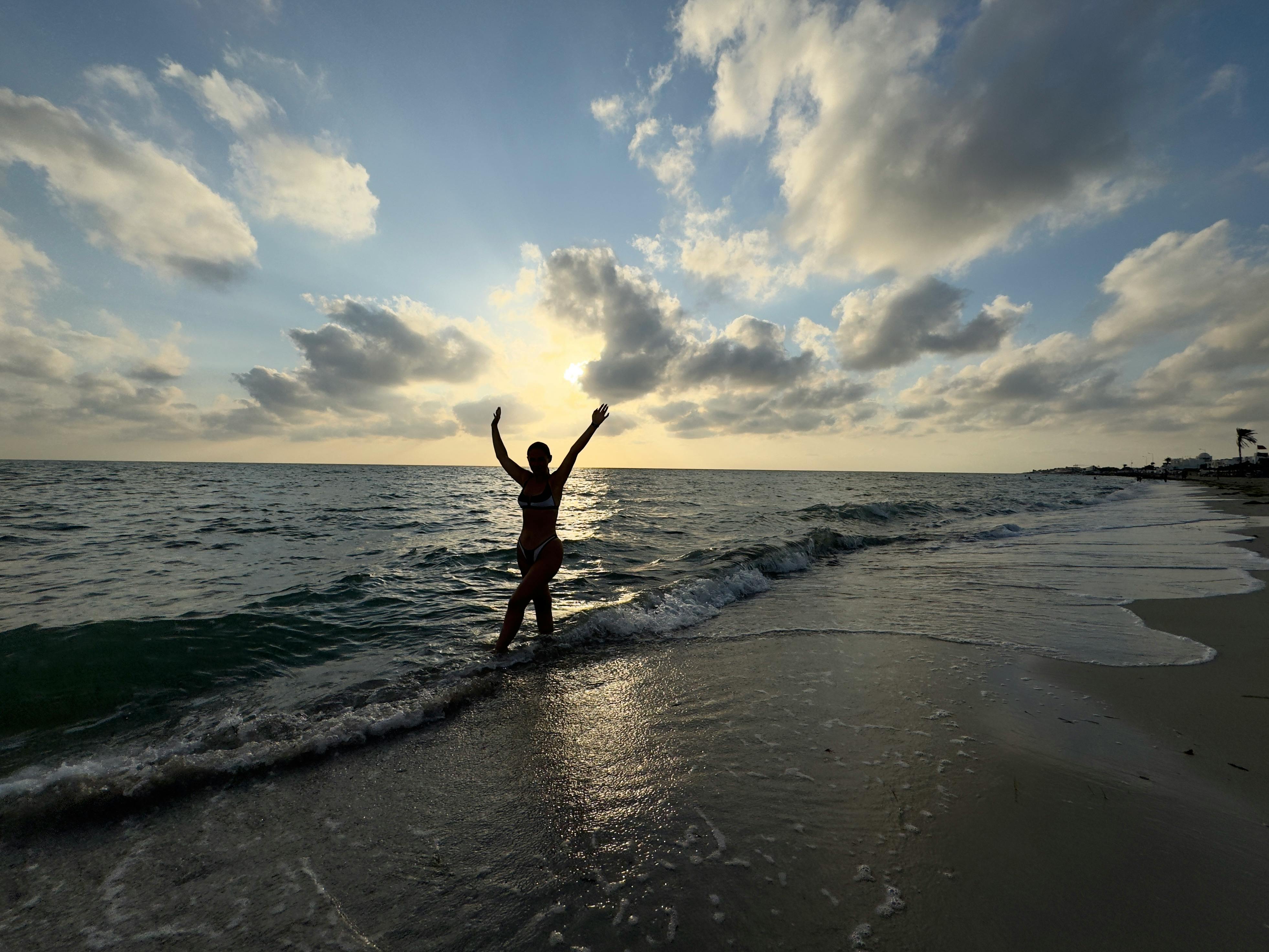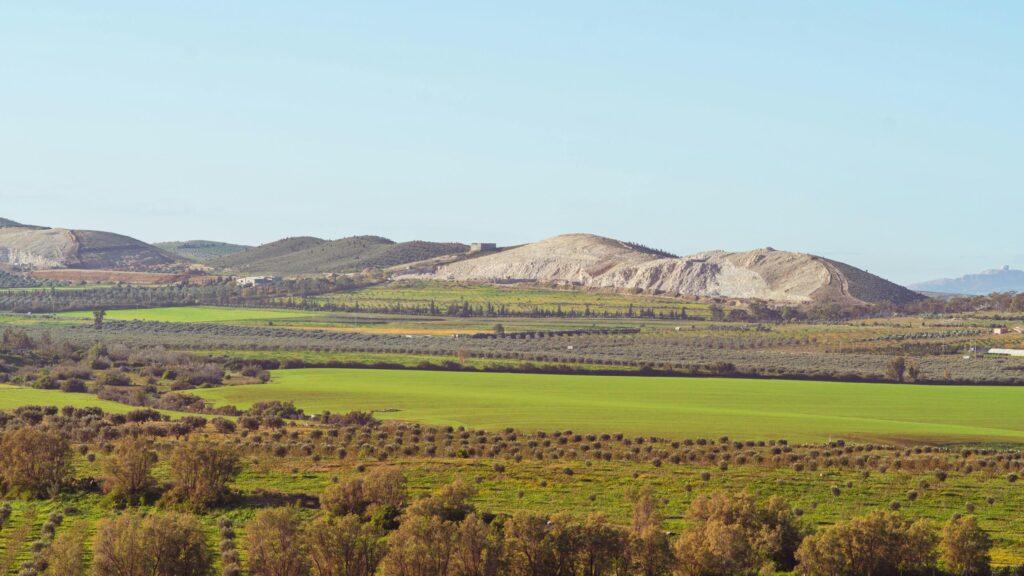Nestled between the Mediterranean Sea and the Sahara Desert, Tunisia is a secret haven for budget travelers who like adventure. As a poor backpacker, I went on an unforgettable adventure through Tunisia, immersed in its rich history, vibrant culture, and breathtaking landscapes. From the ancient ruins of Carthage to the stunning beaches of Djerba, Tunisia has something to offer every kind of traveler.
It’s also a very affordable destination, though a bit off the beaten track, which can make for a more interesting and less spoiled experience for those willing to travel a little further. With 3,000 years of history, Tunisia offers an amazing wealth of historical sites, including ancient medinas, Roman amphitheaters, and Phoenician ports. And with warm hospitality and friendly locals, Tunisia is a perfect place to experience the real charm of North Africa.
As far as this blog is concerned, I look to giving personal experiences, tips on getting the most out of your trips in Tunisia on budget, low-cost street foods, attractions, and further into its off-beat trails. In the wake of everything to enjoy and have fun on your economical holiday package to Tunisia.
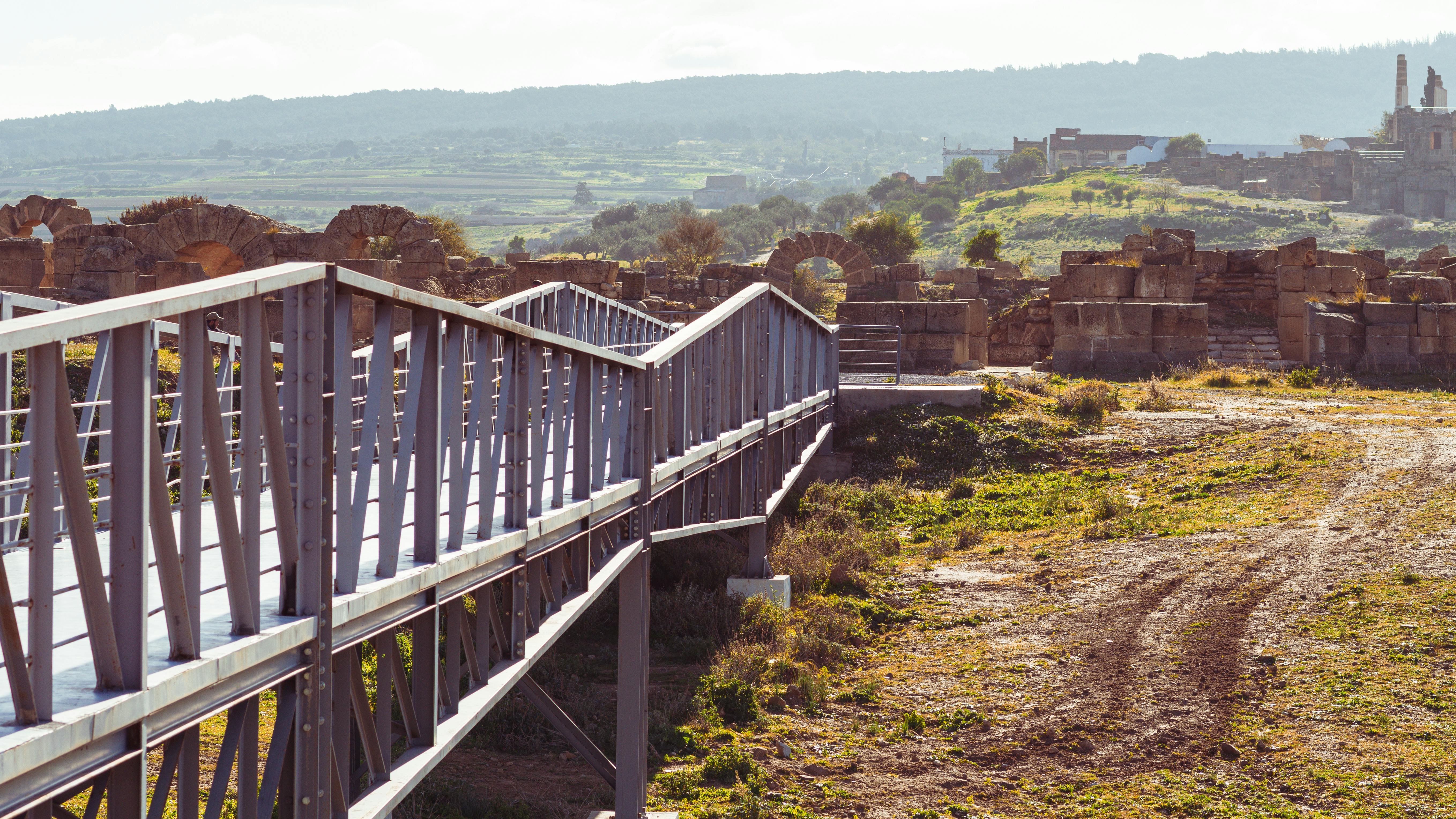
How to get there:
Tunisia is easily accessible by public transportation from its neighboring countries. Whether you’re coming from Algeria, Libya, or Italy, there are several affordable options to get to Tunisia. In this blog post, we’ll explore the cheapest ways to get to Tunisia using public transportation and flights from nearby countries.
From Algeria
The most convenient way to get to Tunisia from Algeria is by bus. Several bus companies, such as SNTRI and ETNH, operate daily services from major Algerian cities like Algiers, Annaba, and Constantine to Tunis, the capital city of Tunisia. The journey takes around 10-12 hours, depending on traffic and the route, and costs approximately 1,000-1,500 Algerian dinars (around $8-12 USD).
From Libya
Due to the current situation in Libya, there are limited public transportation options available from Libya to Tunisia. However, you can take a taxi or bus from the Libyan city of Tripoli to the border town of Ras Ajdir, and then another taxi or bus from there to Tunis. The journey can take around 6-8 hours, depending on the traffic and the route, and costs approximately 200-300 Libyan dinars (around $40-60 USD).
From Italy
If you’re coming from Italy, the fastest and most convenient way to get to Tunisia is by ferry. Several ferry companies, such as Grimaldi Lines and Tirrenia di Navigazione, operate daily services from Italian ports like Palermo, Trapani, and Naples to Tunis. The journey takes around 10-24 hours, depending on the route and the type of ferry, and costs approximately 30-100 euros (around $35-120 USD).
Cheapest Flights to Tunisia
If you prefer to fly to Tunisia, here are some of the cheapest flights from nearby countries:
- From Algeria: You can fly from Algiers to Tunis with Air Algerie or Tunisair for around $100-200 USD.
- From Libya: Due to the current situation in Libya, there are limited flight options available. However, you can fly from Tripoli to Tunis with Libyan Airlines or Tunisair for around $200-300 USD.
- From Italy: You can fly from Rome or Milan to Tunis with Alitalia, Tunisair, or Ryanair for around $50-150 USD.
Tips and Reminders
Before traveling to Tunisia, make sure to:
- Check the latest travel advisories and visa requirements for your country.
- Book your tickets and accommodations in advance to avoid high prices and availability issues.
- Pack accordingly, taking into account Tunisia’s climate and cultural norms.
- Learn some basic Arabic phrases and Tunisian customs to enhance your travel experience.
By following these tips and using public transportation or affordable flights, you can easily and affordably get to Tunisia from its neighboring countries. Happy travels!
When to go:
As a broke backpacker, timing is everything when it comes to making the most of your trip. In this guide, we’ll explore the best times to visit Tunisia, taking into account the country’s climate, festivals, and tourist season.
Spring (March to May)
Spring is an excellent time to visit Tunisia, with mild temperatures ranging from 15°C to 25°C (59°F to 77°F). The weather is perfect for exploring the country’s ancient ruins, medinas, and beaches. Additionally, spring is a great time to experience Tunisia’s vibrant festivals, such as:
- Tunis International Festival: A celebration of music, dance, and theater from around the world.
- Carthage International Festival: A festival of music, dance, and theater held in the ancient city of Carthage.
Summer (June to August)
Summer is peak tourist season in Tunisia, with hot temperatures often reaching 35°C (95°F) or more. While it can be challenging to explore the country during this time, summer is perfect for:
- Beach-hopping: Tunisia’s beaches, such as those in Hammamet, Sousse, and Djerba, are stunning during the summer months.
- Festivals and events: Summer is a great time to experience Tunisia’s vibrant festivals, such as the Tunis Medina Festival and the Djerba International Festival.
Autumn (September to November)
Autumn is another excellent time to visit Tunisia, with comfortable temperatures ranging from 15°C to 25°C (59°F to 77°F). The summer crowds have dissipated, making it easier to explore the country’s attractions. Additionally, autumn is a great time to:
- Explore the Sahara Desert: The cooler temperatures make it an ideal time to venture into the Sahara Desert and experience the stunning landscapes and Berber culture.
- Attend the Dougga International Festival: A festival of music, dance, and theater held in the ancient city of Dougga.
Winter (December to February)
Winter is the low season in Tunisia, with cooler temperatures ranging from 10°C to 15°C (50°F to 59°F). While it may not be the best time to visit the beaches, winter is perfect for:
- Exploring the medinas and souks: The cooler temperatures make it an ideal time to wander through the narrow streets and alleys of Tunisia’s ancient medinas and souks.
- Visiting the museums and historical sites: Winter is a great time to explore Tunisia’s rich history and culture by visiting the country’s many museums and historical sites.
Tips and Reminders
Before planning your trip to Tunisia, keep in mind:
- Weather: Tunisia’s climate varies greatly depending on the season. Pack accordingly and stay hydrated.
- Festivals and events: Tunisia has a rich cultural calendar. Research and plan your trip around the festivals and events that interest you.
- Tourist season: Peak tourist season is during the summer months. If you’re on a tight budget, consider visiting during the shoulder season (April to May or September to November).
- Safety: Tunisia is generally a safe country. However, take normal precautions to ensure your safety, especially in crowded areas and at night.
By considering the best times to visit Tunisia, you can make the most of your broke backpacking adventure and experience the country’s rich culture, history, and landscapes.
Best Itineraries:
3-Day Itinerary: Tunis and Carthage
- Day 1: Explore Tunis’ medina, souks, and the Bardo Museum.
- Day 2: Visit the ancient city of Carthage, including the Roman Amphitheater and the Punic Port.
- Day 3: Relax on the beaches of La Marsa or Gammarth.
1-Week Itinerary: Northern Tunisia
- Day 1-2: Explore Tunis, Carthage, and the surrounding beaches.
- Day 3: Visit the ancient city of Dougga, a UNESCO World Heritage Site.
- Day 4: Explore the charming town of Testour, known for its Andalusian architecture.
- Day 5: Visit the Roman ruins of Bulla Regia.
- Day 6-7: Relax on the beaches of Tabarka or Kelibia.
2-Week Itinerary: Central and Southern Tunisia
- Day 1-3: Explore Tunis, Carthage, and the surrounding beaches.
- Day 4-5: Visit the ancient city of Sbeitla, known for its well-preserved Roman ruins.
- Day 6-7: Explore the Sahara Desert, including the towns of Tozeur and Douz.
- Day 8-9: Visit the island of Djerba, known for its beautiful beaches and vibrant markets.
- Day 10-14: Relax on the beaches of Zarzis, Gabès, or Sfax.
1-Month Itinerary: Exploring Tunisia’s Hidden Gems
- Week 1: Explore Northern Tunisia, including Tunis, Carthage, Dougga, and Testour.
- Week 2: Visit Central Tunisia, including Sbeitla, Tozeur, and Douz.
- Week 3: Explore Southern Tunisia, including Djerba, Zarzis, and Gabès.
- Week 4: Relax on the beaches of Sfax, Mahdia, or Monastir.
3-Month Itinerary: Living Like a Local in Tunisia
- Month 1: Explore Northern Tunisia, including Tunis, Carthage, and the surrounding beaches.
- Month 2: Live like a local in a small town, such as Testour, Tozeur, or Djerba.
- Month 3: Explore Southern Tunisia, including Sfax, Mahdia, and Monastir.
Note: These itineraries are flexible and can be adjusted based on your interests, budget, and travel style.
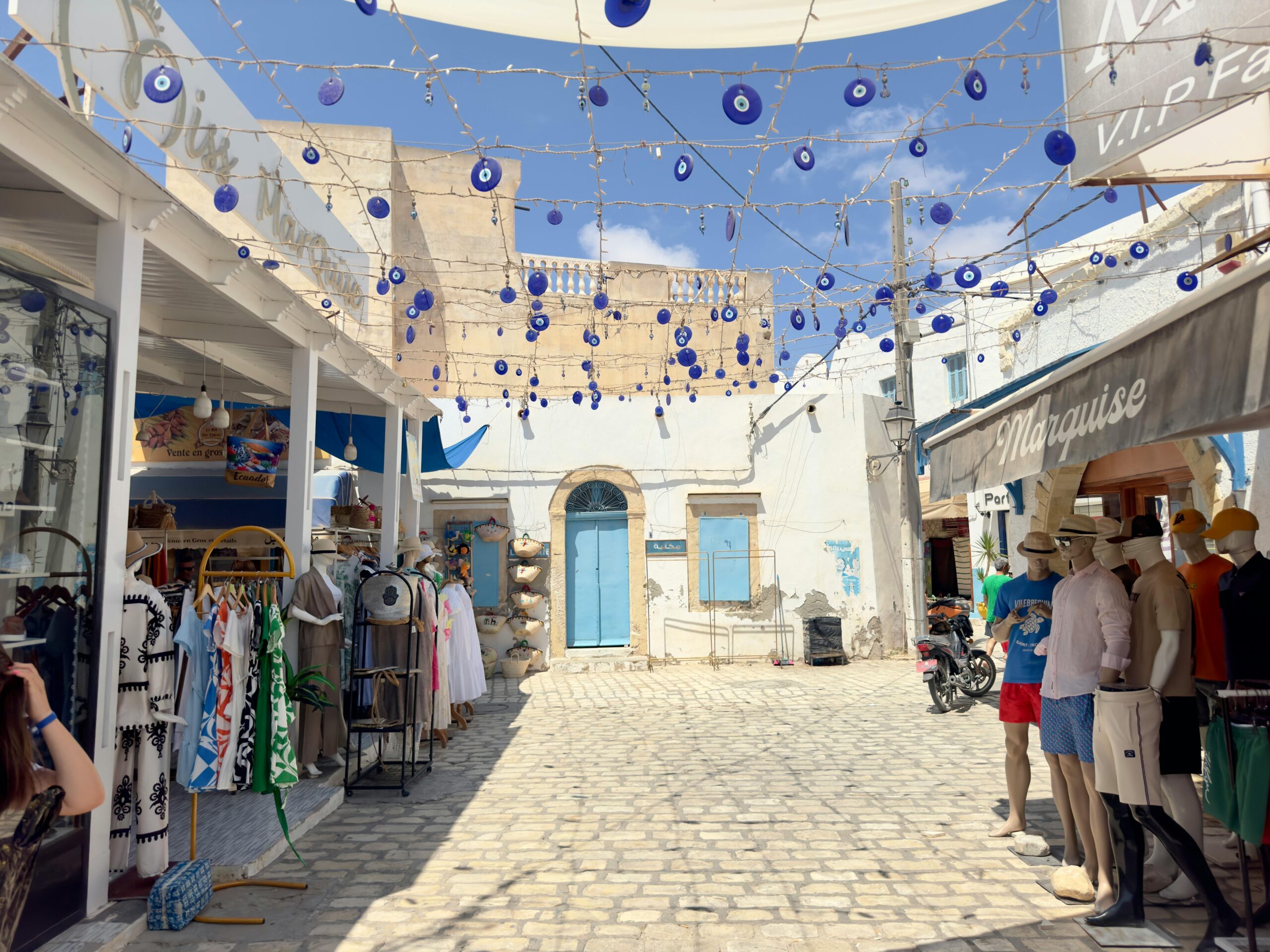
Transportation:
Tunisia boasts an extensive network of public transportation, making it relatively easy to get around without breaking the bank. From buses and trains to taxis and hitchhiking, this guide will walk you through the various options available for navigating Tunisia’s public transportation system.
Buses
Buses are an affordable and efficient way to travel within Tunisia. The country has an extensive network of bus routes, operated by several companies, including:
- SNTRI (Société Nationale de Transport Interurbain): SNTRI operates bus services between major cities and towns.
- ETNH (Entreprise Tunisienne de Navigation et de Transport): ETNH operates bus services between Tunis and other major cities.
Bus fares are relatively cheap, with prices starting from around 1 TND (0.30 USD) for short distances. You can purchase tickets at bus stations or on board.
Trains
Tunisia’s train network is limited, but it’s a convenient way to travel between major cities. The national railway company, SNCFT (Société Nationale des Chemins de Fer Tunisiens), operates train services between Tunis, Sousse, Sfax, and other major cities.
Train fares are relatively affordable, with prices starting from around 5 TND (1.50 USD) for short distances. You can purchase tickets at train stations.
Taxis
Taxis are widely available in Tunisia, but be sure to negotiate the fare before you start your journey. Taxi fares are relatively cheap, with prices starting from around 1 TND (0.30 USD) for short distances.
Hitchhiking
Hitchhiking is a popular way to travel in Tunisia, especially among backpackers. According to [Hitchwiki]((link unavailable)), Tunisia is a relatively easy country to hitchhike in, with many locals willing to pick up hitchhikers.
Some tips for hitchhiking in Tunisia:
- Be respectful: Dress modestly and be respectful of local customs.
- Use signs: Use signs to indicate your destination, and be prepared to negotiate with drivers.
- Be patient: Hitchhiking can be unpredictable, so be prepared to wait for long periods.
Louages
Louages are shared taxis that operate on fixed routes. They are a convenient and affordable way to travel within Tunisia. Louage fares are relatively cheap, with prices starting from around 1 TND (0.30 USD) for short distances.
Tips and Reminders
Before using public transportation in Tunisia, keep in mind:
- Language: Arabic and French are the official languages, but many locals speak some English.
- Currency: The Tunisian dinar is the local currency, but euros and US dollars are widely accepted.
- Safety: Tunisia is generally a safe country, but take normal precautions to ensure your safety, especially in crowded areas and at night.
- Respect local customs: Tunisia is a conservative country, so dress modestly and be respectful of local customs.
By following this guide, you’ll be well-equipped to navigate Tunisia’s public transportation system and make the most of your trip. Happy travels!
Top things to do:
Tunis and Surroundings
- Medina of Tunis: Explore the narrow streets and alleys of the ancient medina.
- Bardo Museum: Discover Tunisia’s rich history and culture at this world-renowned museum.
- Carthage: Visit the ancient city of Carthage, including the Roman Amphitheater and the Punic Port.
- La Marsa and Gammarth beaches: Relax on these beautiful beaches, popular with locals and tourists alike.
- Sidi Bou Said: Visit this charming coastal town, known for its beautiful beaches and vibrant markets.
- Cathedral of St. Vincent de Paul: Explore this stunning cathedral, one of the largest in Africa.
Northern Tunisia
- Dougga: Explore the ancient city of Dougga, a UNESCO World Heritage Site.
- Testour: Visit this charming town, known for its Andalusian architecture and vibrant markets.
- Bulla Regia: Discover the ancient Roman ruins of Bulla Regia.
- Tabarka: Relax on the beautiful beaches of Tabarka.
- Ain Draham: Visit this charming town, known for its beautiful waterfalls and vibrant markets.
- Kef: Explore the ancient medina and vibrant markets of Kef.
Central Tunisia
- Sbeitla: Explore the ancient city of Sbeitla, known for its well-preserved Roman ruins.
- Kairouan: Visit this historic city, known for its ancient medina and the Great Mosque of Kairouan.
- Tozeur: Explore the Sahara Desert and experience the stunning landscapes and Berber culture.
- Douz: Visit this charming town, known for its vibrant markets and stunning desert landscapes.
- Gafsa: Explore the ancient medina and vibrant markets of Gafsa.
- Makthar: Visit this charming town, known for its ancient Roman ruins and vibrant markets.
Southern Tunisia
- Djerba: Relax on the beautiful beaches of Djerba and explore the island’s vibrant markets.
- Zarzis: Visit this charming coastal town, known for its beautiful beaches and vibrant markets.
- Gabès: Explore the ancient medina and vibrant markets of Gabès.
- Matmata: Visit this charming town, known for its ancient troglodyte dwellings.
- Medenine: Explore the ancient medina and vibrant markets of Medenine.
- Tataouine: Visit this charming town, known for its ancient Berber architecture and vibrant markets.
Sahara Desert
- Sahara Desert trek: Explore the stunning landscapes and Berber culture of the Sahara Desert on a guided trek.
- Camping in the Sahara: Spend a night under the stars in the Sahara Desert.
- Camel rides: Take a camel ride through the Sahara Desert and experience the stunning landscapes.
- Berber villages: Visit traditional Berber villages and experience the local culture.
- Star gazing: Spend a night in the Sahara Desert and experience the incredible star gazing opportunities.
- Dune bashing: Take a thrilling ride through the sand dunes of the Sahara Desert.
Islands and Coastline
- Djerba Island: Relax on the beautiful beaches of Djerba and explore the island’s vibrant markets.
- Kerkennah Islands: Visit these charming islands, known for their beautiful beaches and vibrant markets.
- Sfax coastline: Explore the beautiful coastline of Sfax, known for its stunning beaches and vibrant markets.
- Mahdia coastline: Visit this charming coastal town, known for its beautiful beaches and vibrant markets.
- Monastir coastline: Explore the beautiful coastline of Monastir, known for its stunning beaches and vibrant markets.
Note: Prices are not included, as they can vary depending on the time of year and other factors.
Food:
Richly endowed with Mediterranean, Arab, and Berber inspiration, Tunisia is one hell of a destination for foodies. Pretty awesome news for the totally broke backpacker: not only is Tunisian cuisine out-of-this-world tasty, it’s also super cheap and accessible.
One of the biggest cliches of Tunisian food has to be couscous, a traditional North African meal made from semolina flour, water, and salt. This is traditionally Friday cuisine, but it is available with vegetables, meat, and sauce throughout the week. You will find couscous in every restaurant and home in Tunisia, generally for very cheap prices starting from 5 TND $1.50 USD for a basic plate. Upon ordering couscous, you will be served a steaming hot big plate of semolina topped with a host of vegetables, meat, and sauce. It could include carrots, zucchini, and onions as vegetables, and the meat may be lamb, beef, or chicken. The sauce is normally made of a mixture of spices, herbs, and olive oil.
Harissa is another staple in Tunisian cuisine; this is a spicy chili pepper paste, the result of roasted red peppers, garlic, coriander, and olive oil. It is used in many dishes to flavor and add heat, especially to couscous, soups, and stews. You can find it in just about every supermarket and market, and it is very inexpensive, with prices starting at around 1 TND ($0.30 USD) for a small jar. Harissa is the base ingredient of most Tunisian dishes and is served on the side at most meals as a condiment. Whenever you order a meal in Tunisia, you will be asked if you want harissa, and if you do, it will be served on the side in a small bowl.
A wide variety of soups and stews are also part of Tunisian cuisine, such as chorba, a thick soup made from vegetables, beans, and meat. In any restaurant, chorba is generally considered a starter or main course and is very cheap. A bowl of chorba could cost from 3 TND ($0.90 USD) upwards. The waitress places before you a large bowl filled with steaming hot soup of a great many vegetables, beans, and meat. It would be carrots, potatoes, onions, chickpeas, kidney beans, lentils, or what have you. The meat can be lamb, beef, or chicken, and the soup can be flavored with a range of spices and herbs, including cumin, coriander, and parsley.
Along with these traditional dishes, Tunisia is also famous for its delicious pastries and desserts, such as baklava, makroud, and brik. These sweet treats are usually very affordable, with prices starting from around 1 TND ($0.30 USD) for a piece. Whenever you order some sort of pastry or dessert, you are usually given the most delicious and flaky pastry in Tunisia, prepared with nuts, seeds, and dried fruits, among other ingredients. Sometimes sweet, sometimes savory, they are often flavored with an assortment of spices and herbs such as cinnamon, cardamom, and rose water.
When it comes to eating out, Tunisia has a wide range of options, from street food stalls and markets to mid-range restaurants and high-end eateries. One of the most popular street foods in Tunisia is the “sandwich Tunisien,” a delicious sandwich made from tuna, egg, and harissa, served in a crispy baguette. You can easily find these sandwiches in most street food stalls and markets, and they are very affordable, starting from about 2 TND ($0.60 USD) for a sandwich. When you order a sandwich Tunisien, you’ll typically be served a delicious and crispy baguette, filled with a variety of ingredients, including tuna, egg, and harissa. It is tuna, which can be canned or fresh, with the egg hard-boiled or fried. The harissa might be hot or mild and is very often given as a condiment on the side. In drinks, Tunisia has a great deal of things to offer, such as coffee, tea, and fresh juices. Among the most consumed beverages in Tunisia is “café Tunisien,” or Tunisian coffee, which is strong and tasty, made with ground coffee and served in a small cup. You will find it in almost every café and restaurant, and the prices are very cheap, starting from about 1 TND ($0.30 USD) for a cup. Café Tunisien usually involves strongly brewed delicious coffee from the finely ground beans that comes in small cups; sometimes sugar and honey can be added to it. Flavorings like a pinch of cardamom, cinnamon, and others give an important zest to it.
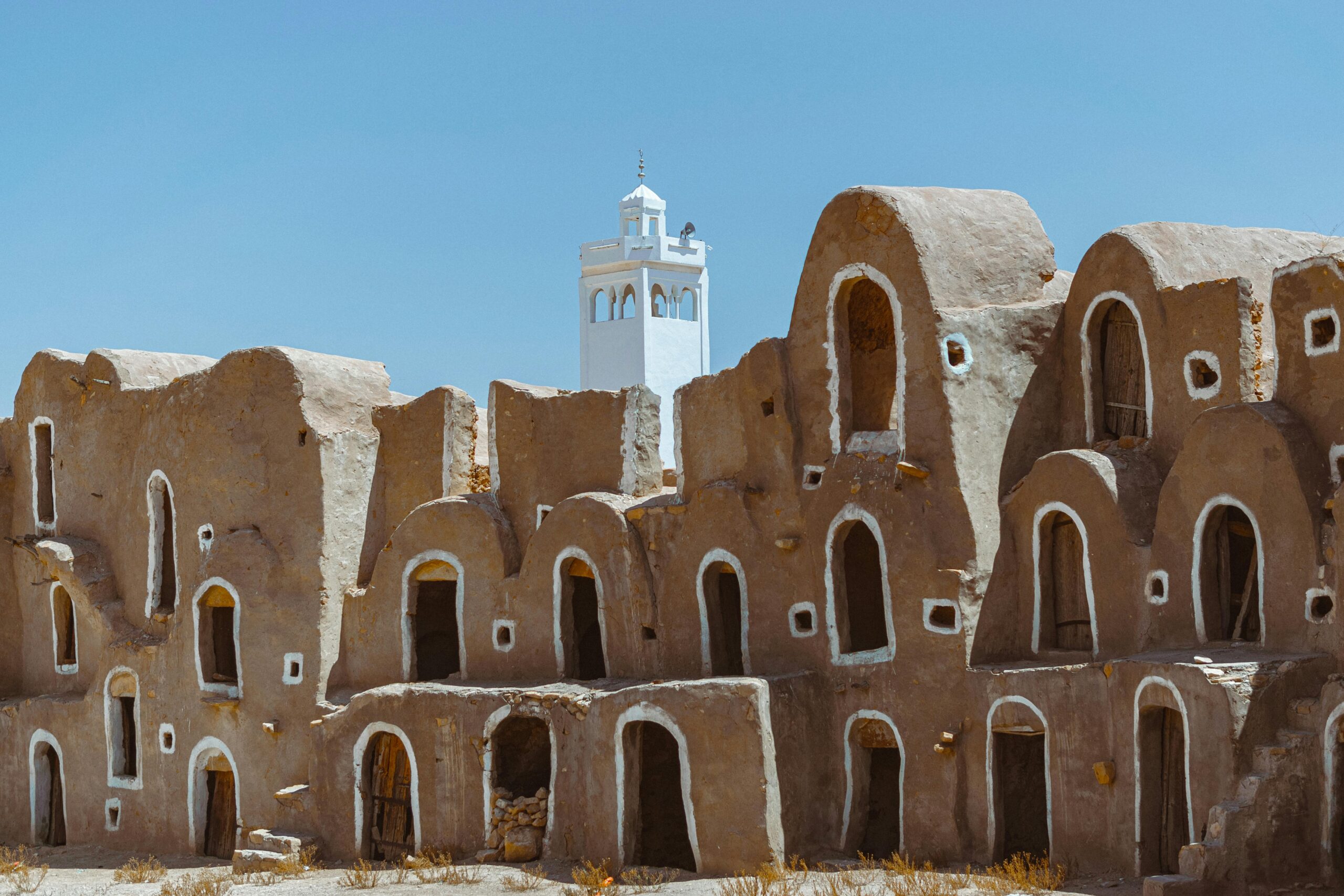
Culture:
Tunisia is a North African country steeped in a rich, highly eclectic culture, considering the position it holds at the very nexus of the Mediterranean, Africa, and the Middle East. This rich and eclectic culture is a fusion of influences from the Arabs, Berbers, and the Mediterranean and reflects the richly convoluted history with successive civilizations that have played out within its borders over the millennia.
The key ingredient within Tunisian culture is the idea of hospitality, which has very deep roots in traditions and customs. Tunisians show great pride in receiving guests into their homes and treat them with much respect and amity. Once you arrive at a Tunisian home, a warm smile greets you, along with a firm handshake, accompanied by offering a refreshing glass of mint tea or coffee. He will offer you a comfortable seat, usually on a plush couch or colorful rug, and plunge you into animated discussions that range from politics and history to music and food.
Food in Tunisia plays a central role in the culture of the country, and it is very often used as a metaphor of hospitality and generosity. Traditional Tunisian foods like couscous, chorba, and brik feature at social gatherings and special occasions, shared with friends and family. Food is frequently prepared and eaten as an activity of the whole and cleaned up afterward. These mealtimes are also time to socialize and bond as lively conversations and debates many times occur around the dinner table.
Music and dance also form important features of Tunisian culture, with a robust traditional base of folk music and dance that reflects its multicultural heritage. Traditional Tunisian music is often performed on the oud, qraqeb, and darbuka to create lively and soulful tunes. The dance also maintains the same kind of vividness with complex steps and gestures expressing the country’s Arabic and Berber influence. Traditional Tunisian music and dances can be experienced live during any cultural festival or in any local music facility. Tunisia’s cultural heritage also reveals a great tradition of handicraft and artisan products. Colorful textiles, detailed ceramics, and refined jewelry are just a few of the popular items, often based on traditional techniques and materials. Handicrafts and other artisan goods may be found in different souks or markets that fill this country, where such commodities are sold by adept artisans and resellers. Besides expressing your respect for local artisans, you will help maintain a highly valued part of Tunisia’s rich cultural heritage.
But that’s not all; Tunisia is also home to a very lively contemporary art scene, replete with galleries and museums featuring the works of local and international artists. The capital of Tunisia, Tunis, is especially known for its highly active arts scene, with several galleries and museums in the historic medina. You can experience for yourself the modern art of Tunisia by visiting one of the many galleries or museums that showcase exhibitions by both local and international artists, with more information about the rising arts scene in the country.
Equally, Tunisia’s culture is shaped by its rich and varied history: Phoenicians, Romans, Arabs, and French have all stamped their mark on this land. The history of the country is reflected in its buildings, with ancient ruins, historic mosques, and colonial-era structures dotting the country everywhere. You can experience it for yourself on a visit to one of these historical sites, learning more about this complex past and seeing for yourself remnants of ancient civilizations.
Similarly telling is the language of this country, of which Arabic and French are both official. Many people, however, do use the language of Berber, primarily spoken by indigenous Berbers. You might also pick up traces of Italian and some English, notably in the speech of younger locals and hospitality industry workers.
Community and family are also very strongly enshrined in the culture of Tunisia. The people of Tunisia hold family as a vital concern in their culture, and families usually live in large household settings. This sense of community and ties in families is reflected in several festivals and celebrations in the country, bringing people together with food, music, and dance.
One of the most important festivals in Tunisia is the Eid al-Fitr, which marks the end of Ramadan, the Islamic holy month of fasting. During Eid al-Fitr, Tunisians generally get together with their families and friends to share traditional foods, such as dates, sweets, and pastries. They also exchange gifts and engage in lively conversations and debates.
Other important festivities in Tunisia include the Eid al-Adha, commemorating the readiness of the Prophet Ibrahim to sacrifice his son. On the day of Eid al-Adha, Tunisians usually get together with their families and friends and share foods like lamb, beef, and chicken. They also debate and discuss in a very lively manner, exchanging gifts.
Among the above festivals, the Tunisian Independence Day also has great significance in Tunisia, when in 1956, it obtained independence from France. During this holiday, Tunisians usually take a day off and join their families.
Accommodations:
As a poor backpacker, I find one of the biggies to be staying cheap but in cool accommodations. Tunisia has a pretty massive variety of hostels and other cheap stays, in which you will most definitely have a good time. But here is a secret: for the craziest, most awesome experiences in hostels, take the cheapest ones.
When you go for those cheap hostels, you are not only saving your money, but you open yourself to a world of impromptu adventures. And that’s because such facilities attract people from all walks of life: backpackers like you, locals, and even expats. The atmosphere is often lively and social, with impromptu jam sessions, cooking classes, and late-night conversations leading to lifelong friendships.
In Tunisia, the most lowly priced hostels have a charming, no-frills quality to them. You might well find yourself sleeping in a cozy, if slightly cramped, dorm room with a handful of fellow travelers. The bathrooms might be shared, and the showers might be a bit temperamental, but that’s all part of the adventure.
Such accommodations are also usually amazingly adorned in some do-it-yourself fashion. You can find colorful murals, handmade furniture, and weird decorations reflecting the owner’s personality. It is nothing strange to see a hostel owner’s personal touches, like family photos, artwork, and sometimes even cats or dogs.
One of the best things about staying in cheap hostels in Tunisia is the opportunity to interact with locals. Many of these hostels are family-run, and owners usually go out of their way to make you feel welcome. They may invite you to dinner with them, offer to take you on a tour of the local area, or simply sit down with you for a chat.
You might find yourself sharing a meal with the hostel owner’s family, learning how to make traditional Tunisian dishes like couscous and harissa. You might even be invited to join in on a traditional Tunisian celebration, such as a wedding or a birthday party.
Of course, cheap hostels in Tunisia are not without their drawbacks. You might have to deal with the occasional power outage, a burst pipe, or a noisy neighbor. But that’s all part of the adventure, and it’s often these unexpected moments that end up being the most memorable.
You may find yourself laughing and joking with fellow travelers as you try to work out a power outage, or with the hostel owner over some traditional Tunisian music that you both love. These small moments of connection and camaraderie are what make the experience of staying in Tunisia’s cheap hostels so great.
So, if you’re a broke backpacker looking for an unusual and unforgettable experience in Tunisia, don’t hesitate to book the cheapest hostel option. You never know what amazing adventures, quirky characters, and lifelong friendships you might find along the way.
As you travel through Tunisia, the little things start to stand out about each hostel. The way the sun filters in through the windows, casting a warm glow over the dorm room. The call to prayer, heard through the streets, is a reminder of the rich Islamic heritage of the country. The smell of freshly baked bread wafting from the kitchen, enticing you to come and sample some of the hostel’s delicious homemade treats.
These little details are what make staying in cheap hostels in Tunisia such a special experience. They’re a reminder that, even on a tight budget, you can still have a rich and rewarding travel experience. So don’t be afraid to take the plunge and book that cheap hostel. You never know what amazing adventures await you.
Nightlife:
With its rich history, vibrant culture, and exciting nightlife scene, Tunisia is a country that truly shines in North Africa. When the sun dips below the horizon on the Mediterranean coast, streets in cities across Tunisia start coming alive with the sounds of music, bursts of laughter, and entertainment. From laid-back bars and cafes to energetic nightclubs and live music venues, Tunisia’s nightlife scene has something for every type of traveler.
Nightlife around Tunisia is in an eclectic mix of both tradition and modernity. Everything is on offer in Tunis-from Arabic coffeehouses to ultramodern bars and discos. For an especially Tunisian nightlife, historic medina is a place one must head to: it consists of small streets and lanes where the cafes, bars, and live music flow onto the streets.
As you explore Tunisia’s cities, you’ll discover a very lively nightlife scene reflecting the rich cultural heritage of the country. From the sounds of Arabic music to the beats of modern electronic dance music, Tunisia’s nightlife is definitely a reflection of the country’s diverse cultural influences.
The best thing about nightlife in Tunisia is how accessible it is, be it for a broke backpacker t or a high-rolling vacationer. Whether you travel on a budget or like to live it up in style, there are a variety of places that fit into every budget and taste-from lowly bars and cafes to upscale nightclubs and live music venues.
Not only is going out at night in Tunisia highly affordable, but it is also very hospitable. Traditionally, Tunisians are known for their warm welcomes and generous hospitality, and it certainly holds true in their nightlife. Whether you are traveling solo or as part of a group, you will find the nightlife in Tunisia to be a very welcoming and accepting environment to meet new faces and make friends.
As you explore the night scene in Tunisia, you’ll also discover a blooming arts and cultural scene: from live music shows, art exhibitions, to cultural festivals, Tunisia’s nightlife is surely an expression of the rich cultural heritage of the country. From traditional Arabic music to modern art and cultural festivals, Tunisia’s nightlife has something for every kind of traveler.
In the last couple of years, the night life of Tunisia has considerably improved, with new bars, clubs, and places to hear live music opening their doors in cities across the country. This has helped create a vibrant and dynamic nightlife scene that’s perfect for travelers looking for a unique and unforgettable experience.
With every passing night, the nights of Tunisia’s cities tend to become even more animated and full of life. The air is filled with the sounds of music and laughing people; the scents of many different kinds of food tease nostrils, wafting out of the restaurants and cafes lining the streets. Whether it is a relaxing evening that you are after or a frenetic night on the town, Tunisia’s nightlife does offer something to fit every traveler’s style.
Also, Tunisia’s strong sense of community and social bonding greatly affects the nightlife situation around it. Tunisians have very high regard for social relations and community ties, which they manage to extend to their country’s nightlife scene. Tunisians can assure that locals and visitors will be able to experience the perfect ambiance in their nightlight to meet new people and make friends.
Adding to the social and cultural relevance, nightlife in Tunisia has an economic importance as well. It is one of the most important contributors to the country’s GDP, which simultaneously offers employment opportunities to thousands. Whether a bartender, DJ, or owner of a restaurant, you’ll find Tunisia’s nightlife as vibrant and dynamic ground that is full of opportunities and possibilities.
In short, the nightlife situation around Tunisia is an interesting and dynamic combination of tradition and modernity. From casual bars and cafes to energetic nightclubs and live music, Tunisia’s nightlife can suit every type of traveler. Be it an evening out in a relaxed atmosphere or an action-filled night in town, Tunisia’s nightlife offers the perfect place to feel the country’s rich cultural heritage and warm hospitality.
Backpacking Tunisia costs:
Daily Expenses:
Accommodation:
- Hostel dorm: 2-5 TND (~ $1-2.50 USD) per night
- Camping: 1-2 TND (~ $0.50-1 USD) per night
Food:
- Street food: 0.5-1 TND (~ $0.25-0.50 USD) per meal
- Groceries: 5-10 TND (~ $2.50-5 USD) per week
Transportation:
- Local transportation: 0.25-0.50 TND (~ $0.12-0.25 USD) per ride
- Long-distance bus: 5-10 TND (~ $2.50-5 USD) per trip
Attractions and activities:
- Museums: 2-5 TND (~ $1-2.50 USD) per person
- Historical sites: 5-10 TND (~ $2.50-5 USD) per person
Other expenses:
- Miscellaneous souvenirs and shopping: 10-20 TND (~ $5-10 USD) per week
- Water and snacks: 5-10 TND (~ $2.50-5 USD) per week
Total daily budget: 15-30 TND (~ $7.50-15 USD) per day
Weekly Expenses:
Accommodation:
- Hostel dorm: 50-100 TND (~ $25-50 USD) per week
- Camping: 20-50 TND (~ $10-25 USD) per week
Food:
- Street food and groceries: 50-100 TND (~ $25-50 USD) per week
Transportation:
- Local transportation: 10-20 TND (~ $5-10 USD) per week
- Long-distance bus: 20-50 TND (~ $10-25 USD) per trip
Attractions and activities:
- Museums and historical sites: 20-50 TND (~ $10-25 USD) per person
Other expenses:
- Miscellaneous souvenirs and shopping: 50-100 TND (~ $25-50 USD) per week
- Water and snacks: 20-50 TND (~ $10-25 USD) per week
Total weekly budget: 250-500 TND (~ $125-250 USD) per week
Keep in mind that these estimates are very rough and can vary greatly depending on your personal spending habits, accommodation choices, and activities.
Conclusion:
As you conclude the journey through Tunisia on a broke budget, the country definitely would have left an indelible mark on your heart. Be it jaywalking in Tunis to the ancient ruins of Carthage, every moment that you spend in Tunisia speaks to the rich history, warm hospitality, and resilient spirit of this country.
Being a broke backpacker, you may have had to make some sacrifices along the way, but the rewards of traveling through Tunisia on a broke budget far outweigh the challenges. You would have met fellow travelers and locals who shared their stories, wisdom, and laughter, creating a sense of community and connection that is hard to find in more touristy destinations.
It may be that Tunisia is not necessarily the most obvious destination for a budget backpacking adventure, but it is also this very lack of tourist infrastructure that makes it such a hidden gem. Embracing the unknown and being open to new experiences has allowed you to tap into the authentic spirit of Tunisia-to discover a side of this country that few tourists ever see.
As you get your backpack ready, get out, and leave Tunisia, you will have that sting in your heart, leaving this great country behind, leaving its people behind. At the same time, though, you will realize you’ve had something special, and these memories and lessons learned in Tunisia will live with you throughout your journey and beyond.
